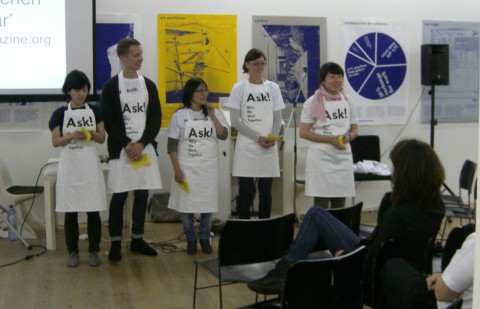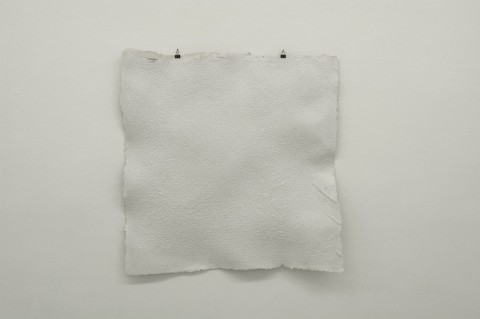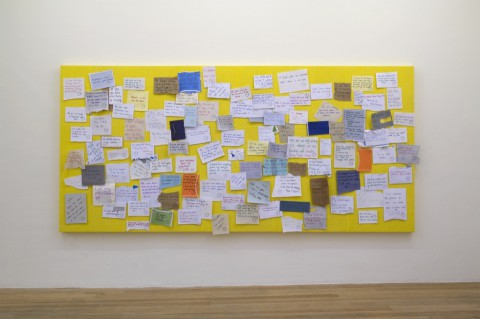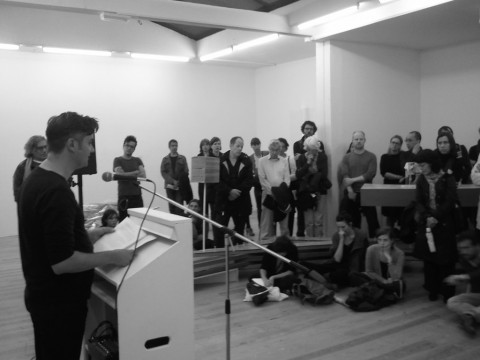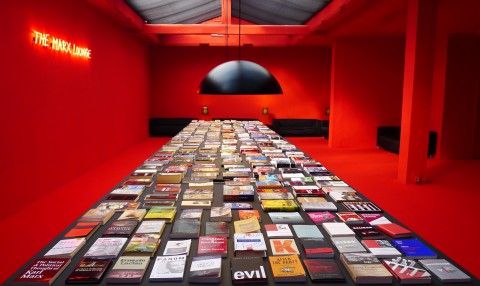Art critic and curator T.J. Demos wrote the third Project ‘1975’ essay ‘Poverty Pornography, Humanitarianism, and Neo-liberal Globalization: Notes on Some Paradoxes in Contemporary Art’. In reaction to Gerardo Mosquera’s former essay T.J. Demos demonstrates a less optimistic vision on globalization. He criticizes humanitarian aid that only seems to reaffirm unacceptable power structures. He starts by referring to back to Renzo Martens’ Episode III: Enjoy Poverty, a film that generated much critique and initiated SMBA’s current programming.
T.J. Demos states: “…Renzo Martens’ film, Episode III: Enjoy Poverty, set in the Democratic Republic of the Congo (DRC), provides a devastating alternative optic on the brutal nature of North-South relations of inequality and the exploitative image economy that stubbornly mediates it. Despite all its risks – perpetuating stereotypes of Africans as helpless victims, reducing Congolese people to neo-colonized servants and neophytes, reproducing a pornography of poverty – Episode III bears important lessons. Among them, a reality check for optimistic globalists and a lethal blow to the ambitions of concerned documentarians, especially those that seek to ameliorate suffering by representing abjection in developing countries.”
The author furthermore rejects contemporary art practices that focus on political malaise elsewhere and do not consider their own space as a political one, not acknowledging subsequently to be actively participating in a problematic system. Alfredo Jaar’s The Sound of Silence, 2006, is also analyzed by Demos as a critical investigation of the relation between globalization’s image economy and humanitarian photojournalism. In the end Demos explains how Abderrahmane Sissako’s film Bamako (2006) “goes beyond the negative fatalism of media and artistic stereotypes that Okwui Enwezor condemns as ‘Afropessimism’.” Thus the critic sheds light on the many political implications that determine Project 1975. Download SMBA newsletter 121 to read ‘Poverty Pornography, Humanitarianism, and Neo-liberal Globalization: Notes on Some Paradoxes in Contemporary Art’.
T.J Demos is a critic and a Reader in the Department of Art History, University College London, and the co-curator of ‘Uneven Geographies: Art and Globalization’ (Nottingham Contemporary, 2010). Writing widely on modern and contemporary art, he is the author of Migrations: Contemporary Art and the Politics of Globalization (forthcoming, Duke University Press), The Exiles of Marcel Duchamp (MIT Press, 2007), and Technology/Transformation: Wonder Woman (Afterall/MIT Press, 2010).
